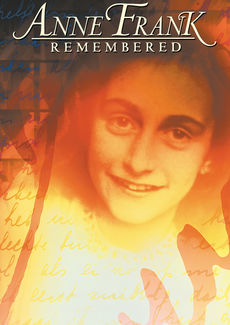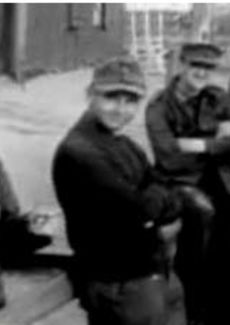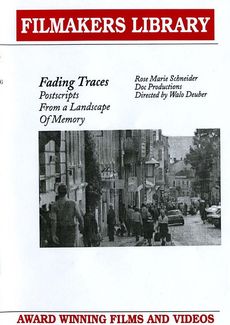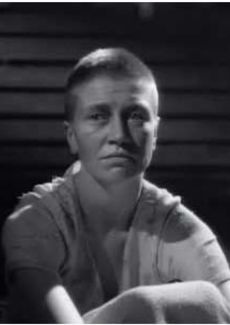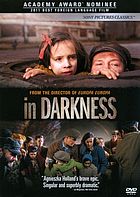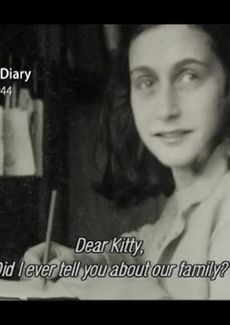
Holocaust survivor Ida Paluch Kersz spoke on Wednesday, April 3 in the Viterbo University Fine Arts Center Main Theatre.
Paluch Kersz was born in Poland in 1939, just months before the German invasion and the start of World War II. She and her mother, older sister, and twin brother Adam were soon sent to the Sosnowiec ghetto, where her mother would commit suicide when Paluch Kersz was three years old. Her father had enlisted in the Polish Army at the beginning of hostilities and would eventually be captured in Russia but would survive the war.
In 1942, with deportation from the ghetto to the death campus imminent, Paluch Kersz was passed through a wire fence and was taken in by a Polish Christian family. She would experience further harrowing events but lived through the war. In 1957, Paluch Kersz and her biological father emigrated to Israel where she met her future husband. The couple soon married, had a daughter, and then moved to Chicago.
More than 50 years after they were separated in 1942, Paluch Kersz discovered her twin brother Adam had also survived. They reunited in Poland in 1995. Their unique story of reunion is retold in the memoir Unveiled Memories and a documentary of the same name.

Holocaust survivor Peter Feigl spoke on March 23, 2023 in the Viterbo University Fine Arts Center Main Theatre as part of the D.B. Reinhart Institute for Ethics in Leadership’s spring lecture series.
Born in Berlin, Germany, Feigl and his parents eventually fled to Vichy France to escape the Nazis. In summer 1942, the Vichy government, in collaboration with the Nazis, began rounding up Jews and deporting them to German concentration camps in Poland. On Aug. 26, 1942, unbeknownst to Feigl, who was in a Quaker summer camp, his parents were arrested and deported to Auschwitz, where they were killed within a month of their arrival.
With the help of the Quakers, Feigl was sent to the predominantly Protestant village of Le Chambon-sur-Lignon. Sheltered in the surrounding area were nearly 5,000 people, among whom were 3,500 Jews, including many children. In the village, Feigl was given false identity papers and sent as a boarding student to a high school in Figeac, France. From there, after escaping arrest during a German raid in May 1944, Feigl escaped to neutral Switzerland over barbed wire fences with the help of the Jewish underground.
Feigl immigrated to the U.S. in July 1946, where he served three years in the U.S. Air Force. For 35 years, Feigl pursued a career in international sales of aircraft and related services in the private sector and spent more than five years as a senior negotiator in the Office of the Secretary of Defense. Since retiring, Feigl has traveled around the world speaking about his experiences and two diaries he wrote detailing his experiences during the Holocaust. In 1954, Feigl married Leonie Warschauer, and they have two daughters. He is now a volunteer at the United States Holocaust Memorial Museum. He is the author of the book, One Man, Two Voices: Peter Feigl’s Diary and Testimony.
More details about Feigl’s story are available at https://www.viterbo.edu/db-reinhart-institute-ethics-leadership/lecture-series.

Zapruder began her career as a member of the founding staff of the United States Holocaust Memorial Museum (USHMM) in Washington, D.C. A graduate of Smith College, she served on the curatorial team for the museum’s exhibition for young visitors, Remember the Children, Daniel’s Story. She earned an EdM in Education at Harvard University in 1995.
In 2002, Zapruder completed her first book, Salvaged Pages: Young Writers’ Diaries of the Holocaust, which was published by Yale University Press and won the National Jewish Book Award in the Holocaust category. She wrote and co-produced I’m Still Here, a documentary film for young audiences based on her book, which aired on MTV in May 2005, and was nominated for two Emmy awards. In 2016, she published her second book, Twenty-Six Seconds: A Personal History of the Zapruder Film, which tells the story of her grandfather’s home movie of President Kennedy’s assassination. She has been published in Parade, LitHub, Smithsonian, and The New York Times.
Zapruder serves as the Education Director of The Defiant Requiem Foundation and is a member of the Board of Directors for the Educators’ Institute for Human Rights, a nonprofit that develops partnerships with teachers in post-conflict countries to provide training in best practices on human rights, genocide prevention, and Holocaust education.
The library has her first book, Salvaged Pages: Young Writers' Diaries in the Holocaust as both a print and e-book. This book includes diary entries from Peter Feigl, the previously-announced speaker for this event, who had to cancel due to illness.
Holocaust survivor Eva Schloss, Anne Frank’s childhood friend, shared her incredible story of survival as part of the Viterbo University D.B. Reinhart Institute for Ethics in Leadership spring lecture series. To view the presentation, visit the Viterbo Ethics Institute page at www.viterbo.edu/ethics.
Following the German annexation of Austria in 1938, then eight-year-old Eva fled her native country with her family to Belgium and then later Holland, where one of her neighbors was a German Jewish girl of the same age named Anne Frank, the author of her famous diary. The two girls became friends and playmates. Ultimately, both girls and their families were deported to the infamous Auschwitz concentration camp.
Eva survived and was liberated from Auschwitz by Soviet troops in 1945. She eventually emigrated to England after the war, where she married Zvi Schloss and raised three daughters. Frank would eventually be transferred to the Bergen-Belsen concentration camp, where she died. Eva and Anne would become posthumous stepsisters in 1953 when Eva’s mother Elfriede married Anne’s father Otto.
Eva Schloss has devoted herself to Holocaust education and global peace since 1985. She has recounted her wartime experiences in more than one thousand speaking engagements. She has written two books and has had a play written about her life. Both of Schloss's books can be checked out from the Viterbo library.

